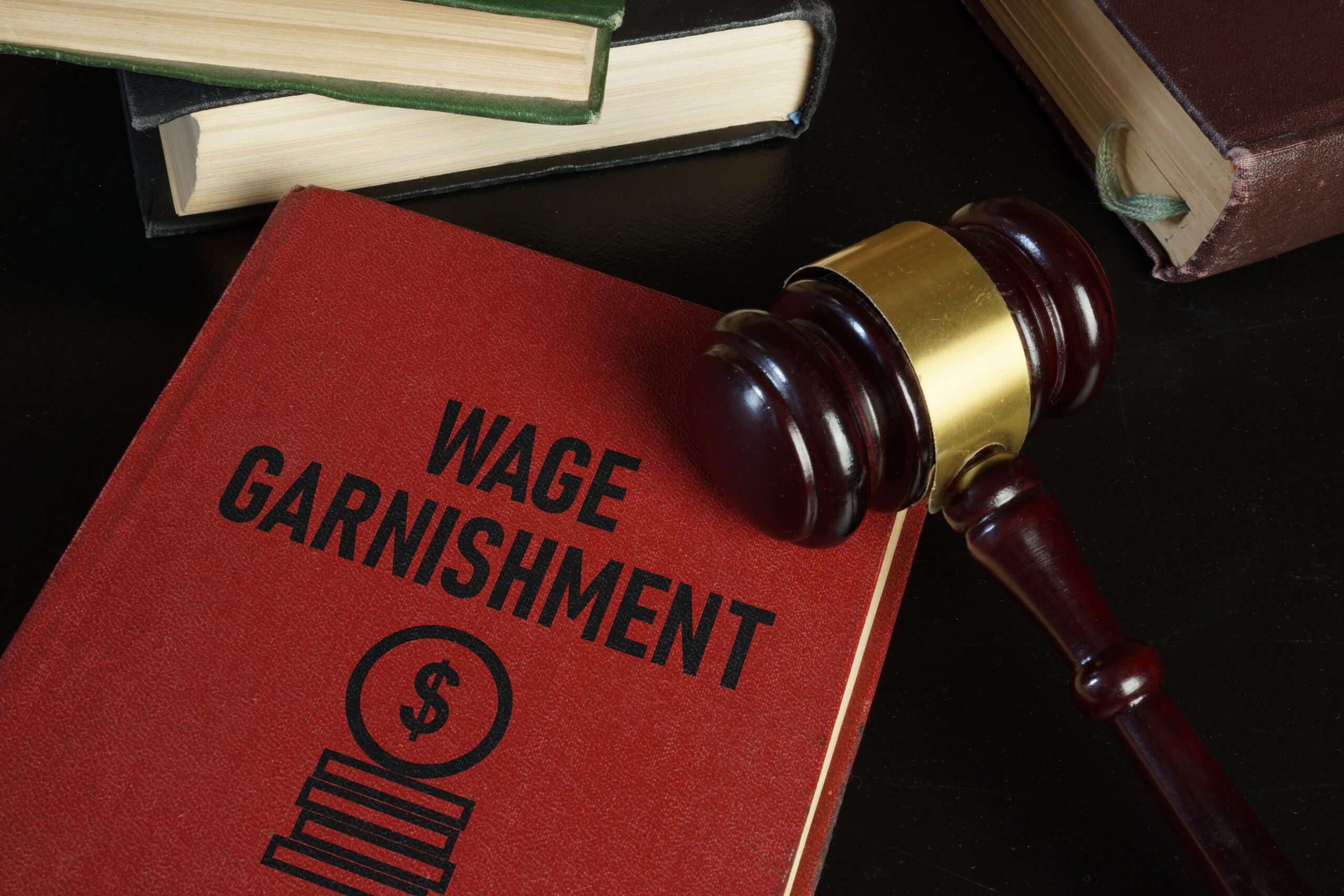





Attorney at Debt Advisors Law Offices
Practice Areas: Chapter 7 Bankruptcy, Chapter 13 Bankruptcy, Stop Foreclosure

When you’re already juggling bills and living expenses, the thought of your paycheck being reduced through a wage garnishment can be stressful. Wage garnishment laws in Wisconsin are designed to protect both creditors and workers, but many people don’t fully understand how these laws work or what rights they have. This guide breaks down the entire process in plain language so you can make informed financial decisions without panic or confusion.
Wage garnishment is a legal process that allows a creditor to take part of your earnings to pay off an unpaid debt. It doesn’t happen automatically. A creditor must first sue you in court, win a judgment, and then request a garnishment order. Once approved, your employer is legally required to withhold a portion of your disposable income and send it to the creditor.
Creditors that commonly request wage garnishments include credit card companies, lenders, the IRS, and child support agencies. Each operates under strict federal and state laws. Wisconsin law offers additional protection to workers by capping how much of your paycheck can be taken.
For most debts, only 20% of your disposable earnings can be garnished. Some types of debt, like child support or taxes, can result in higher deductions or faster enforcement.
Understanding how wage garnishment works in Wisconsin helps you plan ahead and know when you may need professional legal help.
The process begins when a creditor sues you for an unpaid debt. If they win, the court issues a judgment giving them legal authority to collect. The next step is obtaining a garnishment order, which is sent to your employer.
Once your employer receives the court order, they must withhold the specified amount from each paycheck. The withheld amount continues until the debt is paid or the court stops the order.
If you owe multiple debts, federal law prevents more than the maximum garnishment allowed under state or federal limits. However, priority debts like child support and taxes are exceptions.
Under the Consumer Credit Protection Act (15 U.S.C. §1673), creditors cannot garnish more than 25% of disposable earnings or the amount by which weekly income exceeds 30 times the federal minimum wage whichever is less.
Employers are legally bound to comply with garnishment orders. They cannot fire or penalize you for one garnishment, though multiple orders may complicate matters.
Wisconsin’s laws go further than federal protections by offering stronger limits and specific exemptions.
Wisconsin Statute §812.34 limits most garnishments to 20% of disposable earnings, providing greater protection to workers than federal law.
In addition, several types of income are completely exempt from garnishment, including:
If your income comes from these protected sources, creditors generally cannot touch it. Priority debts, such as child support, spousal support, or federal taxes, are treated differently. In these cases, wage garnishments may occur without a court hearing and at higher rates.
Certain income sources Social Security, unemployment benefits, and retirement funds are typically exempt from garnishment under both federal and Wisconsin law.
During the COVID-19 pandemic, wage garnishments were temporarily halted for many types of federal debts, including student loans. However, these protections have largely ended.
Today, creditors have resumed normal collection activities, though the Consumer Financial Protection Bureau (CFPB) continues to monitor abusive practices. Employers have also adopted digital garnishment systems, making enforcement faster.
If you’re still recovering financially after the pandemic, it’s important to know that Wisconsin courts allow hardship exemptions if garnishment leaves you unable to afford essentials.
When you receive notice of a wage garnishment, you have the right to understand and challenge it. You must be notified before deductions begin, and you can request a hearing if you believe the garnishment is unlawful or causes extreme hardship.
You may be able to:
While filing for Chapter 7 or Chapter 13 bankruptcy can stop most garnishments under the automatic stay, it should be viewed as a last resort. The key is to act early and understand your rights before your paycheck is affected.
Even after garnishment ends, financial stress can continue. Rebuilding your budget and protecting your income is critical. Focus on creating an emergency fund and monitoring your credit report for any errors after garnishment. Many Wisconsin residents also benefit from credit counseling or debt management plans, which can help prevent future collection actions.
According to the U.S. Department of Labor (2024 data), nearly 1 in 20 U.S. employees has experienced wage garnishment, most often for consumer debts and child support.
Scams targeting people facing garnishment are common. Always verify the legitimacy of any debt collector or law firm. Debt Advisors Law Offices emphasizes education and transparency, ensuring Wisconsin residents have accurate, reliable financial information.
Most garnishments stop under the automatic stay, but child support and taxes may continue depending on the case.
Creditors can take up to 20% of your disposable income or less if federal law provides greater protection.
Yes, both are exempt from wage garnishment under Wisconsin and federal law unless mixed with non-exempt funds.
Yes, you can request a hardship exemption or negotiate repayment terms directly with the creditor or court.
A valid garnishment must follow a court judgment. You should receive official notice from your employer or court.
Wage garnishment is a lawful process, but it’s not the end of the road. Wisconsin law protects workers by limiting how much creditors can take and by exempting essential income sources like Social Security and unemployment benefits. Knowing these rights can help you avoid financial disaster and rebuild stability.
If you’re facing wage garnishment and need help understanding your options, Debt Advisors Law Offices is here to guide you. Our attorneys help Wisconsin residents explore debt relief solutions, including bankruptcy when appropriate.
You can request a free consultation to learn about your legal rights and discuss how to protect your income. The sooner you understand your options, the sooner you can regain control of your finances.

Learn about bankruptcy protections, types of bankruptcy, how to get started, what to expect, and who to trust. Filing bankruptcy is the ONLY way to completely eliminate debt. If bankruptcy is right for you, it offers powerful protections that cannot be achieved through alternative solutions such as hardship relief, loans, or debt settlement.